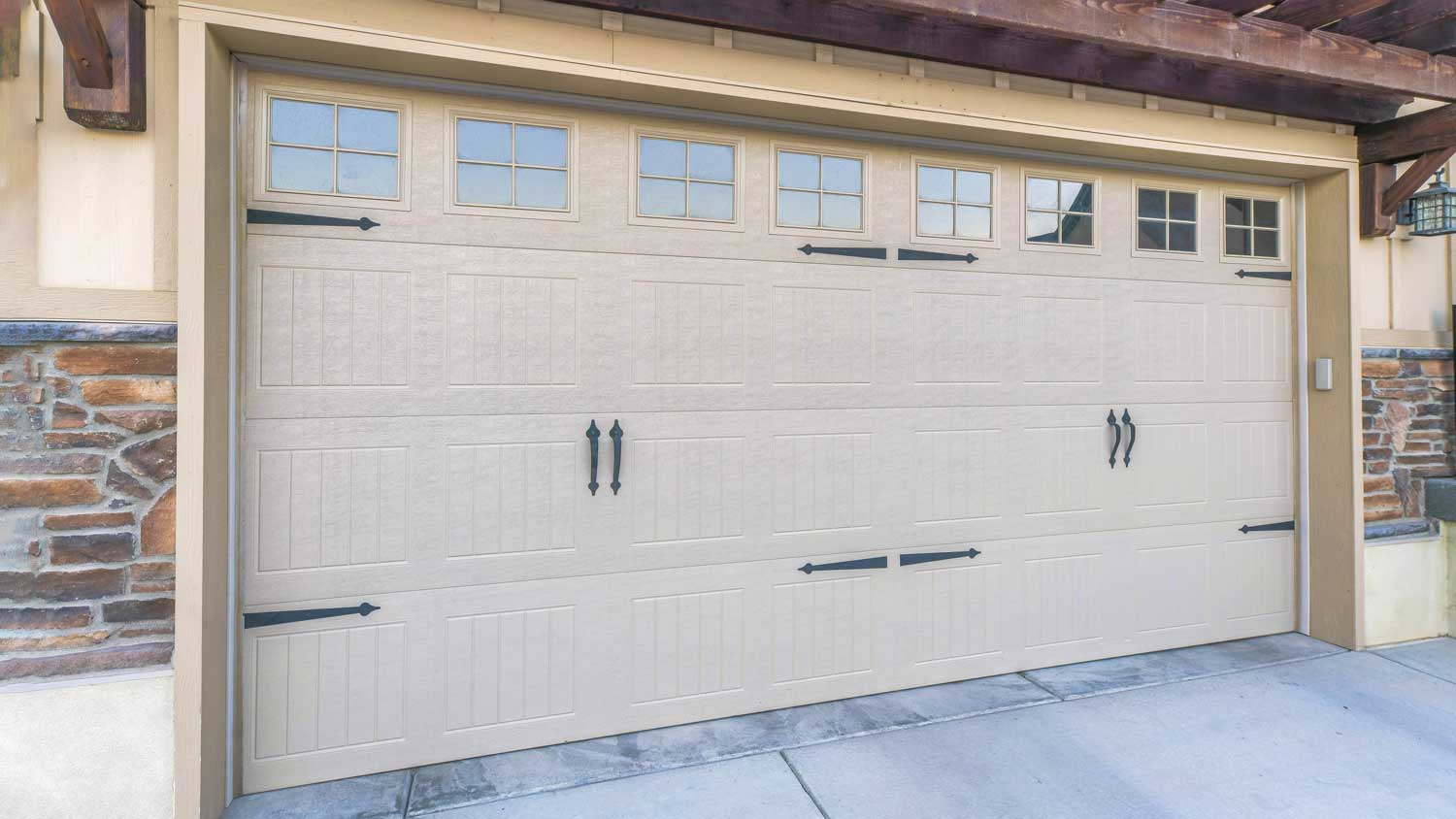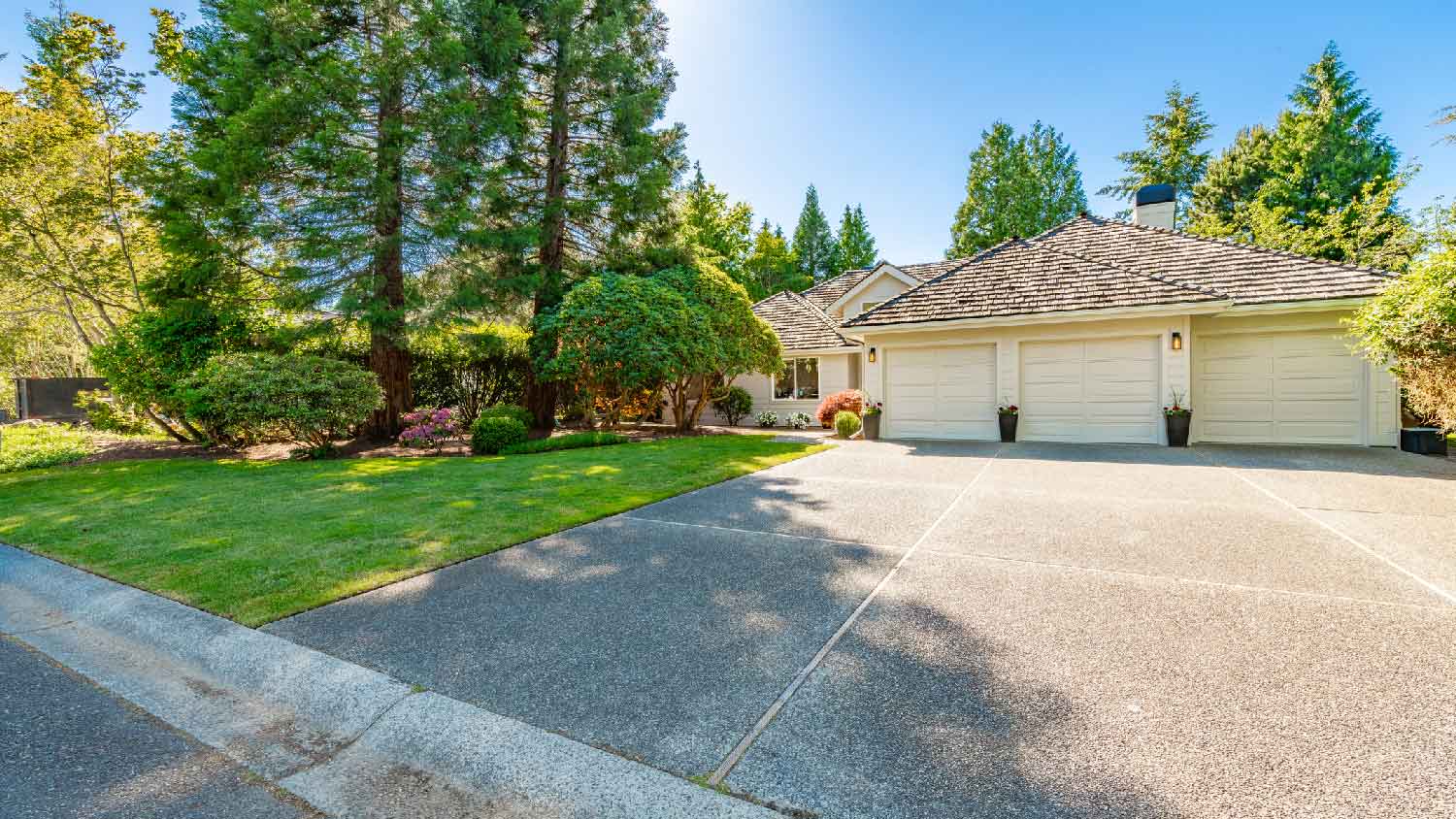4 Types of Garage Doors for Homes: A Complete Guide
Sit in the driver’s seat with this garage door knowledge


| Type of Material | Life Span (In Years) |
|---|---|
| Steel | 15–30 |
| Wood | 20–30 |
| Vinyl | 15–30 |
| Aluminum | 15–25 |
1. Steel Garage Door
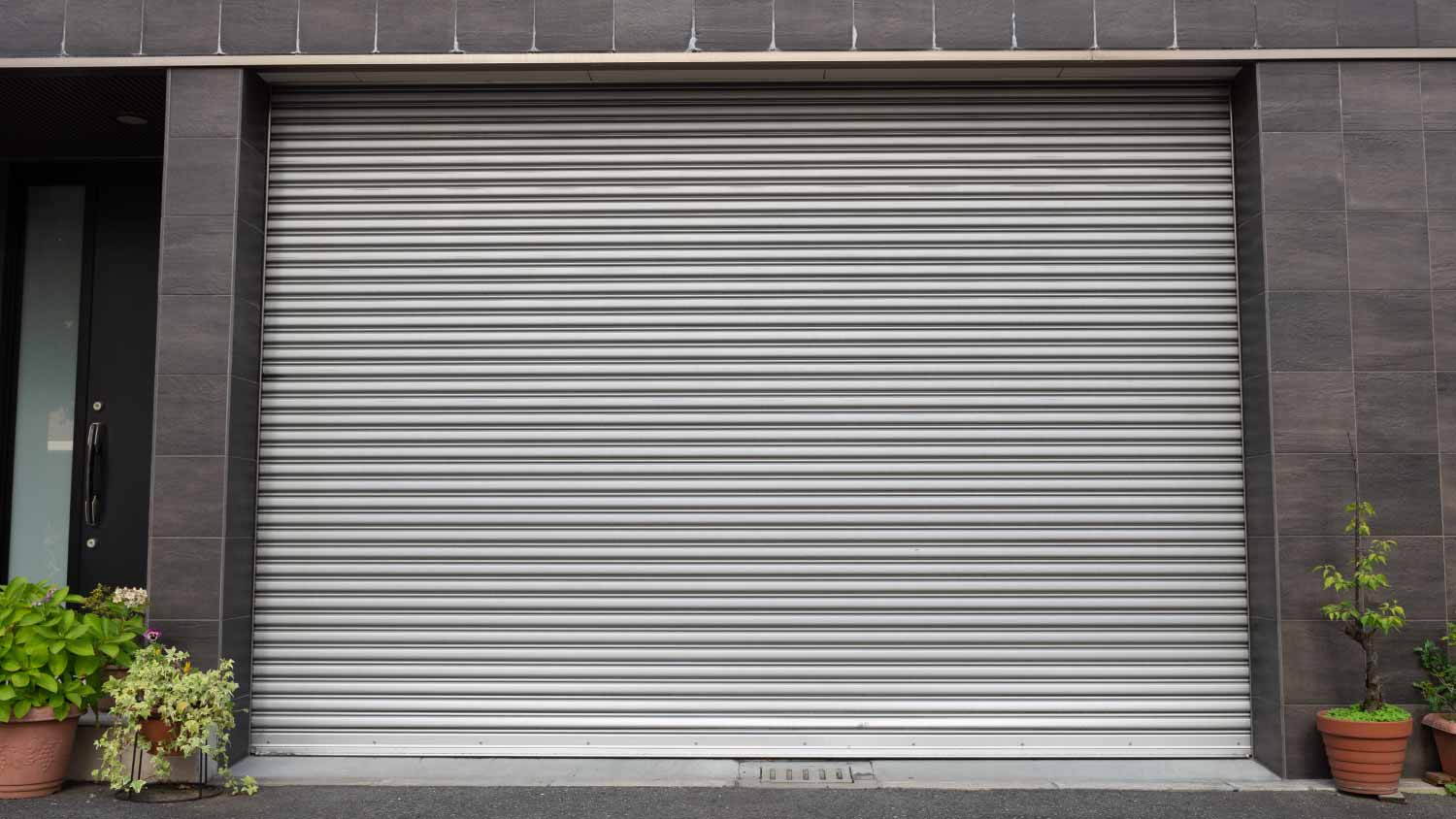
Steel garage doors are very popular for their low cost and durability. Newer steel garage doors often have a rigid foam insulation backing which can keep your home cooler in summer and warmer in winter—and have the added bonus of lowering your energy bills. You can choose from a few thickness options for your steel garage door—24-gauge is the strongest. You can also opt for a model with a baked-on primer and polyester topcoat to prevent rust. To understand all the options, it’s best to talk to a garage door company near you.
| Pros | Cons |
|---|---|
| Very durable | Prone to denting |
| Low cost | Poor insulator |
| Minimal maintenance | Scratches can lead to rust |
| Many design options |
Best for: Homeowners on a tight budget
2. Wood Garage Doors
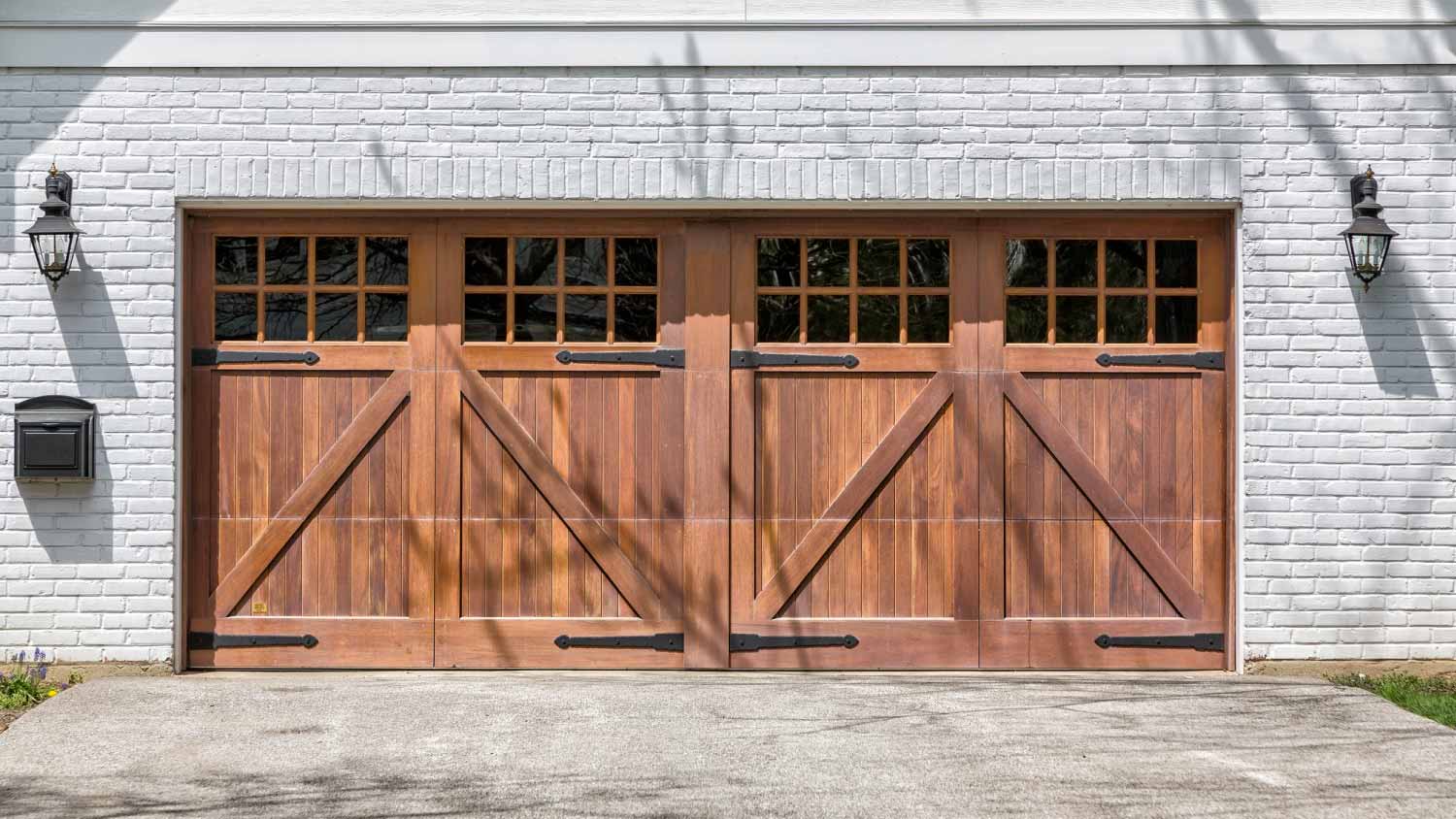
Wood garage doors are often made from mahogany or hemlock and offer a high-end luxurious look. Once very popular, homeowners are choosing wood less often due to the more involved maintenance requirements: wood needs regular painting or staining to maintain its appearance and give it protection against harsh weather. Wood garage doors often have shorter warranties compared to other materials, but this varies depending on the manufacturer.
| Pros | Cons |
|---|---|
| Curb appeal—luxurious look | Requires regular maintenance |
| Endlessly customizable | Shorter warranties |
| Insulation options available | Expensive |
Best for: Homeowners who want a luxurious look
3. Vinyl/Polyvinyl Chloride (PVC) Garage Doors
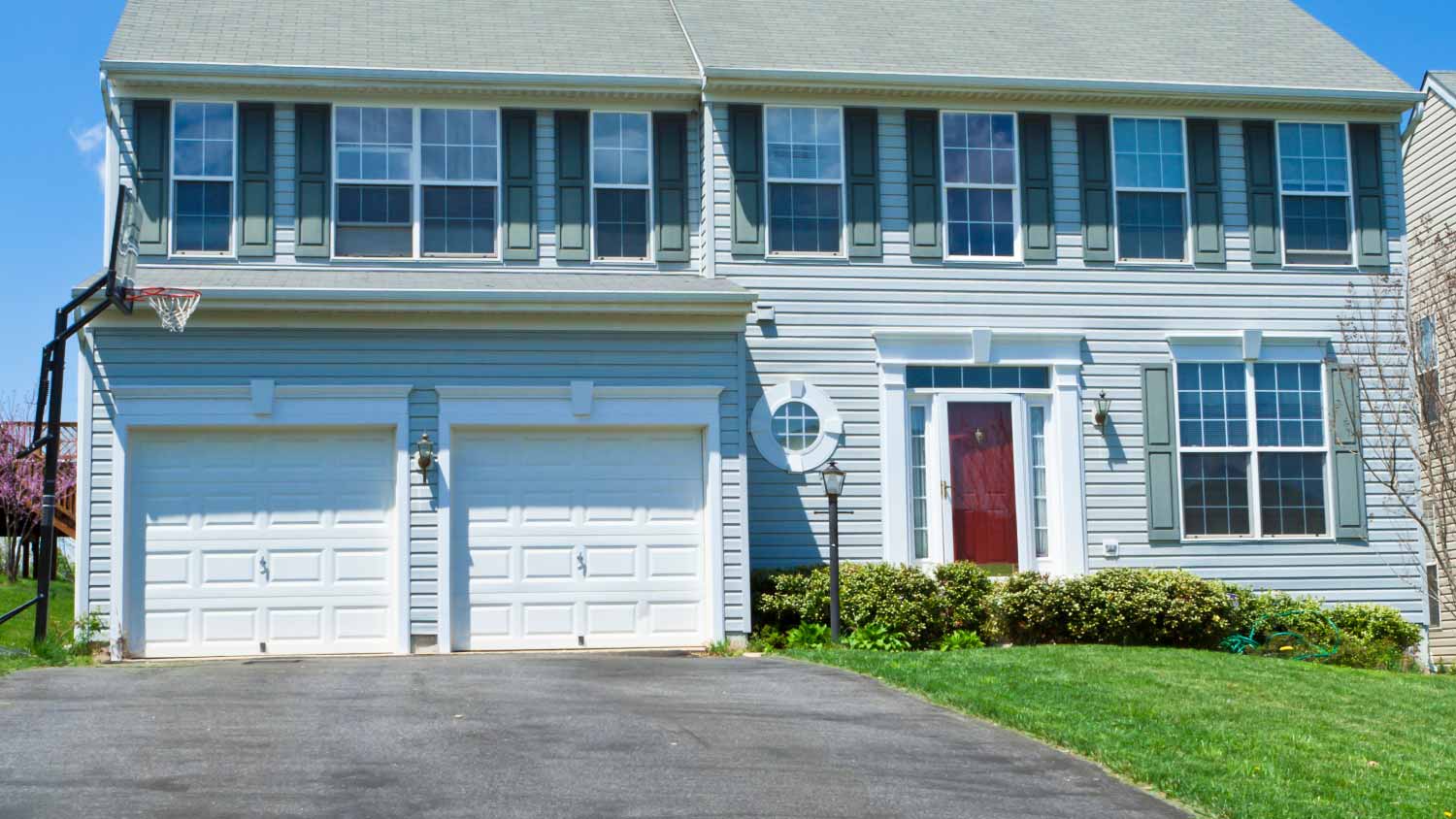
Vinyl garage doors require very little maintenance. You’ll need to make sure the tracks and door opener are kept in working condition, but otherwise, this material is rust- and warp-resistant, hardly ever dents, and camouflages scratches well, as the color is baked into the material. Vinyl is a bit more expensive than steel or aluminum but costs less than wood or fiberglass. Unfortunately, vinyl does have its downsides: there are limited colors available for this material, and it isn’t a great insulator—if you live in a cold place, you might need to add extra insulation.
| Pros | Cons |
|---|---|
| Low maintenance | Poor insulator |
| Rust-resistant | Limited color availability |
| Typically comes with a lifetime warranty |
Best for: Homeowners who want the lowest maintenance option
4. Aluminum Garage Doors
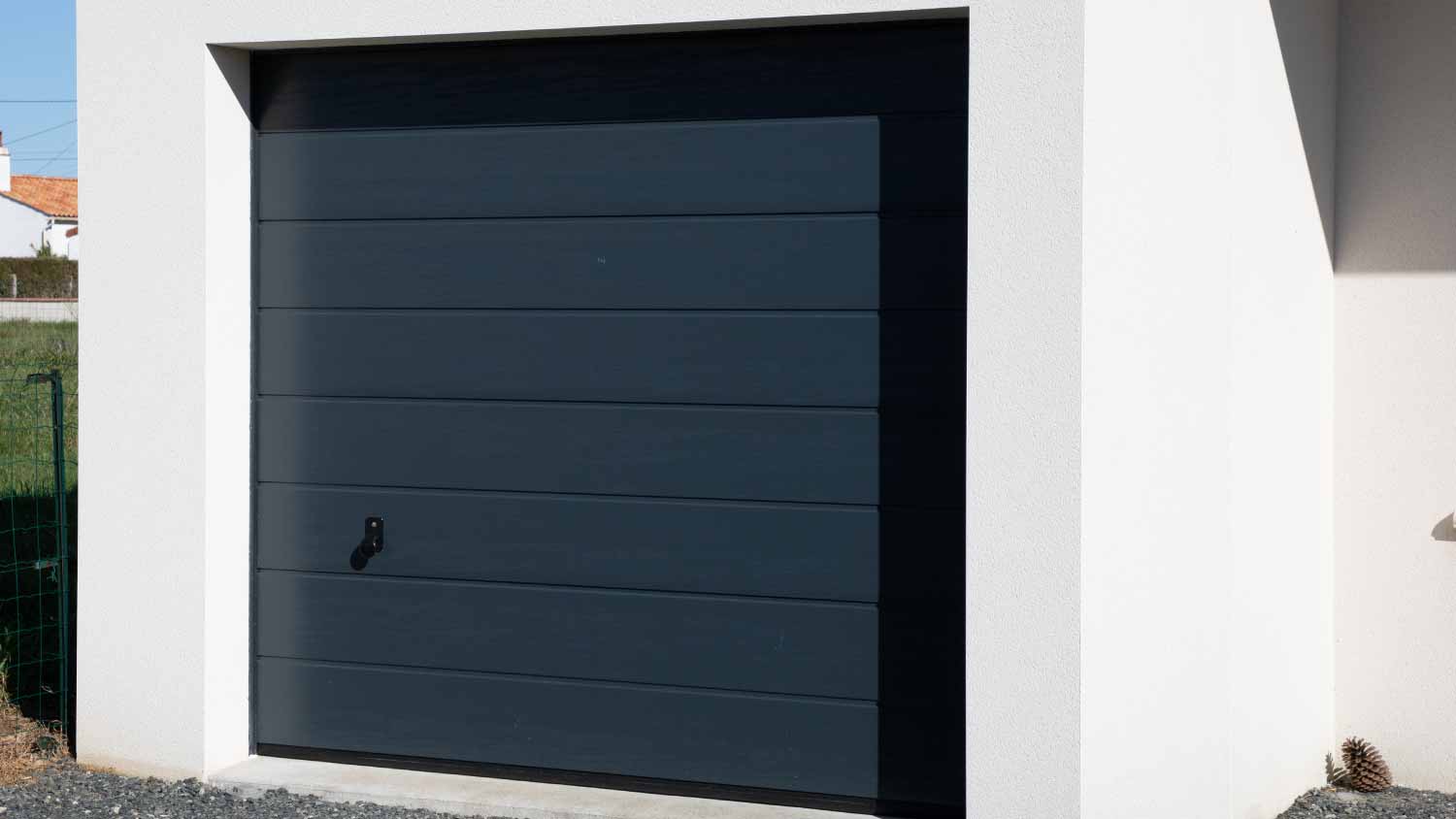
Aluminum garage doors are lightweight, highly resistant to extreme weather, and don't rust or deteriorate in damp conditions, which makes this material a good choice if you live in a location with a lot of rain. Because aluminum is so light, it’s also a solid option if you live somewhere with frequent power outages—manually opening an aluminum garage door without a garage door opener is much easier than opening a heavy steel or wood one. Unfortunately, like steel, the main downside to aluminum is that it is prone to denting.
| Pros | Cons |
|---|---|
| Lightweight | Prone to dents |
| Rust-resistant | High heat (hot summers) can reduce durability |
| Minimal maintenance | |
| Can be made from recycled materials |
Best for: Homeowners who live somewhere with frequent power outages



